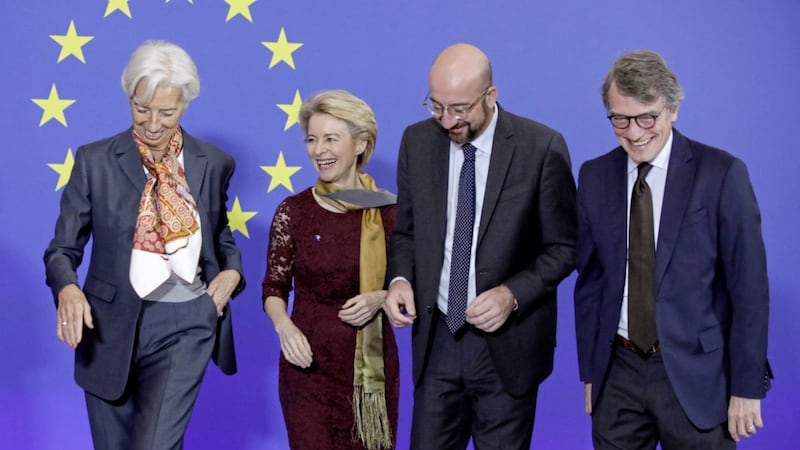WE have reached a fascinating turning point in modern Irish history. The leaders of Irish nationalism have formally abandoned the 850-year-old aspiration of a free and independent Ireland and opted instead to pursue a (so far undefined) united Ireland, within the confines of the European Union.
The evidence lies in the fact that in next week's British election and the forthcoming Southern election, all major nationalist parties will support Irish (and British) membership of the EU.
This is a perfectly legitimate political stance, but since EU membership runs contrary to national political and economic independence, Irish nationalism appears to have given up on the idea of a free Ireland.
Last week, for example, Christian Kastrop, an adviser to the former German finance minister, said that Ireland suffered unnecessarily harsh austerity measures from 2008, on Berlin's instructions.
On hearing that, no Irish politician complained. Sinn Féin said it proved austerity measures were wrong, but the party did not object to the EU's sovereign power over Ireland.
In their haste to leave the remnants of the British Empire, nationalists are rushing headlong into a new, and largely German-dominated, EU Empire.
Ah but, says Sinn Féin/SDLP (it is hard to tell the difference these days), this new empire will produce a united Ireland.
However, since Ireland was united in the British Empire before 1921, is nationalism now merely aspiring to go back 100 years?
You may argue that EU membership will free us from Tory austerity. But British and Irish austerity are both imposed by Berlin (although the Tories and Fine Gael would probably have implemented it anyway).
The 1993 Maastricht Treaty (Article 4) says that EU states' budget deficits must not exceed 3 per cent of the value of their economic activity.
This means that austerity is official EU policy, limiting national governments' spending (including Britain's).
By increasing, rather than limiting, government expenditure, the USA saw its economy grow by 10 per cent more than the EU's since 2008.
But EU countries must follow Berlin's imperial-style economic orders.
While Ireland's EU membership allows the SDLP to maintain the nationalist tradition of colonial home rule, SF has had to reinvent republicanism, since EU membership goes against the left-wing ideals of the 1916 Proclamation.
Article 119 of the Treaty on the Functioning of the EU requires member states' economic policy to be based on a market economy and allows private companies to sue democratically elected governments, if a public monopoly infringes competition rules.
This conflicts with the Proclamation's declaration of the right of the people of Ireland to the ownership of Ireland. You could argue that these ideals are now out-dated, but then why commemorate 1916?
Part of the explanation for the rush away from Britain is that nationalists want to assert their Irish citizenship.
But under the 2007 Lisbon Treaty (which SF campaigned against) we are both EU and Irish citizens.
In the event of any clash between the rights and duties of the two, EU citizenship takes precedence. (You may notice the words 'European Union' above the word 'Ireland' on your passport.)
Within the EU, Irish citizenship is second-class. Never mind, say nationalists, the EU will support a united Ireland. But Berlin and Brussels have yet to reveal the price for that support.
The EU has created a €13 billion defence fund and the new President of the European Council, Charles Michel, said recently that the EU must have its own (military) capacity "in order to have more weight".
An EU army is likely soon and, as a payback, Ireland will be expected to surrender its military neutrality.
Of course, like the British army, the EU army will have 'Irish' regiments, this time trained to die for German financial interests.
But, you say, we will have a united Ireland. However, will unionists accept it? If not, will this century differ from the last one, with unionists as Irish guerrillas fighting against a different empire? If so, will we really have Irish unity?
Maybe we should seek a better way to unite the people of Ireland.









